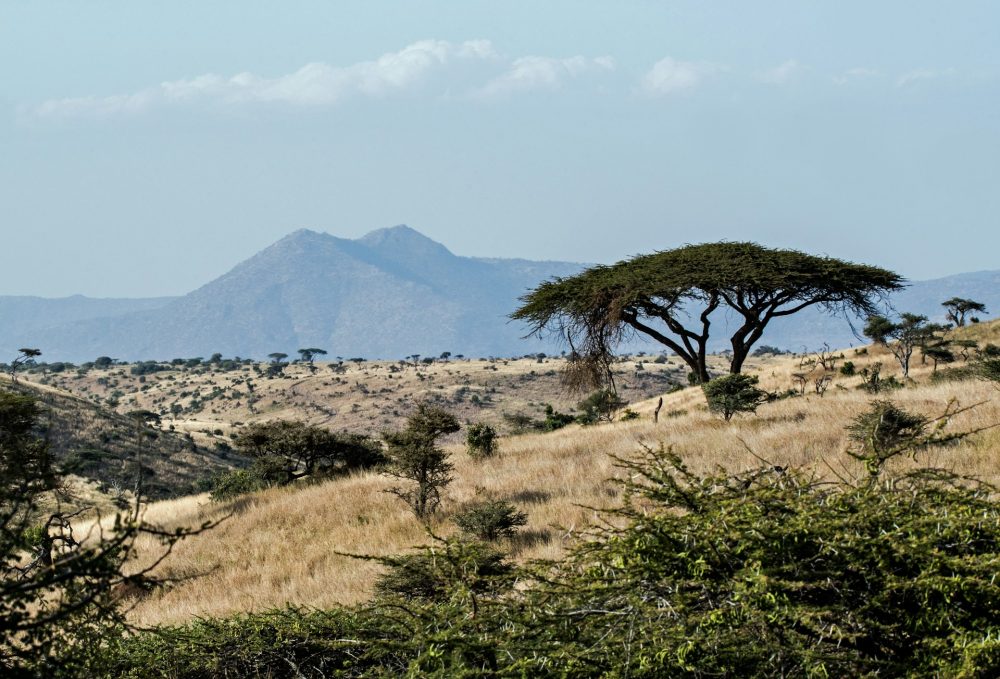Africa
Innovative Biodiversity Financing Urged to Unlock Africa’s Economic Potential
At a Cape Town conference, African nations were urged to explore innovative biodiversity financing beyond national budgets. With over 7,000 species threatened, speakers stressed biodiversity’s economic value. Through programs like BIOFIN, strategies include permit fees and investment tools. Delegates called for better cooperation, citizen-accessible offset portals, and sharing of effective practices to safeguard biodiversity sustainably.

African countries must think innovatively about biodiversity financing, beyond traditional national budget funding, to realize Africa’s economic potential. This was the call made Tuesday, May 2oth in South Africa by participants at an international conference on the review of national and regional biodiversity strategies and action plans.
“Every hectare of forest cleared, every waterway polluted, and every species lost diminishes not only our ecological wealth, but also our economic potential,” was the grim observation made Tuesday in Cape Town by participants in the regional dialogue of member states of the Southern African Development Community (SADC), the East African Community (EAC), and other English-speaking countries.
The meeting focused on updating or revising biodiversity strategies. According to delegates, more than 7,000 species across Africa are threatened with extinction, which could harm Africa’s economic potential.
Innovating in financing strategies in Africa
Participants highlighted that the financing gap to halt and reverse biodiversity loss by 2030, from all sources, is estimated at $200 billion per year.
“Biodiversity is not a luxury; it is the foundation of our economies, our health, and our survival,” speakers argued, arguing that robust biodiversity strategies are more than just policies; they are strategic tools for unlocking international funding, attracting private investment, and directing public spending to where it matters most.
The speakers provided an overview of innovative financing solutions developed in some African countries under the Biodiversity Finance Initiative (BIOFIN) program. This program helps countries improve their financial management of biodiversity and ecosystems.
“Through the BIOFIN program, a framework has been developed to guide a fee-setting process for biodiversity permits, which enables cost recovery and the attribution of value to natural resources,” they note.
He explained that the basis of this work is that income from sources such as protected area entrance fees, tourism concessions, conference facilities, fees and biodiversity-related permits can play an important role in supporting the financial sustainability of the conservation area.
Synergies
Along the same lines, delegates called for the creation of citizen-accessible biodiversity offset portals, with the aim of improving how offsets are carried out to fund protected area management.
This regional dialogue provides an opportunity for countries that have already revised their biodiversity strategies (NBSAPs) to share good practices, address common challenges and identify potential solutions.
The objective of these strategies is to conserve and manage biodiversity, in order to ensure lasting benefits for the population, through cooperation and partnerships that build on strengths and opportunities.
__
(Featured image by David Clode via Unsplash)
DISCLAIMER: This article was written by a third party contributor and does not reflect the opinion of Born2Invest, its management, staff or its associates. Please review our disclaimer for more information.
This article may include forward-looking statements. These forward-looking statements generally are identified by the words “believe,” “project,” “estimate,” “become,” “plan,” “will,” and similar expressions. These forward-looking statements involve known and unknown risks as well as uncertainties, including those discussed in the following cautionary statements and elsewhere in this article and on this site. Although the Company may believe that its expectations are based on reasonable assumptions, the actual results that the Company may achieve may differ materially from any forward-looking statements, which reflect the opinions of the management of the Company only as of the date hereof. Additionally, please make sure to read these important disclosures.
First published in LES ECO.ma. A third-party contributor translated and adapted the article from the original. In case of discrepancy, the original will prevail.
Although we made reasonable efforts to provide accurate translations, some parts may be incorrect. Born2Invest assumes no responsibility for errors, omissions or ambiguities in the translations provided on this website. Any person or entity relying on translated content does so at their own risk. Born2Invest is not responsible for losses caused by such reliance on the accuracy or reliability of translated information. If you wish to report an error or inaccuracy in the translation, we encourage you to contact us.

-

 Cannabis5 days ago
Cannabis5 days agoAI Can Mimic Psychedelic Experiences but Cannot Truly Feel Them, Study Warns
-

 Cannabis2 weeks ago
Cannabis2 weeks agoWhen a Cutting Becomes a Cannabis Plant: Court Clarifies Germany’s Three-Plant Rule
-

 Crowdfunding1 day ago
Crowdfunding1 day agoBSG Stahl Riesa Launches Crowdfunding for New Floodlights
-

 Africa1 week ago
Africa1 week agoMASI Surge Exposes Market Blind Spot: The SAMIR Freeze and Hidden Risks
























